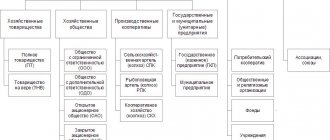Banks
05.10.2020
1526
Author: Myfin.by editorial staff
Photo: pexels.com
Bank deposit (deposit) is one of the most famous components of the modern financial system. Deposits have become such a common occurrence that many people stop thinking about the very essence of this phenomenon.
Last news:
No overpayments. The National Bank wants to limit penalties for late loans
Close a loan or installment plan and not remain in debt to the bank. How to do it right?
The economic basis for the existence of bank deposits, as well as bank loans, is the different needs for money among different members of society. Some have excess money and can stock up. Others need money so badly that they agree to take out bank loans and pay them back with interest. This interest constitutes the earnings of banks and other lending institutions.
Banks take the funds necessary to issue loans from the population and organizations. Individuals and legal entities place their own funds in banks and receive a fee for this - an agreed percentage of the invested amount.
Interest rates on loans and deposits are logically related to each other. Interest rates on loans are higher than on deposits. The difference between these rates becomes the profit of credit institutions.
This is what the lending theory looks like in a nutshell. It should not be forgotten in order to navigate the market and not fall for advertising of ultra-high interest rates. Although this kind of proposal usually comes not from banks, but from various kinds of “financial pyramids”.
Types of bank deposits
Deposit on demand
A distinctive characteristic of a demand deposit is the ability of the depositor to withdraw all or part of his money or replenish his deposit at any time. As a rule, the interest rate on such deposits is minimal and fluctuates around 0.1-1%.
Why then is such a contribution needed? This type of deposit is used to avoid storing large amounts of cash at home. For example, you sold your car and are going to buy a new one, but have not yet decided on the choice and in order to protect yourself and your savings, the best solution would be to open this particular type of deposit.
Urgent
This type of deposit is suitable for the category of citizens who want to receive additional income for storing their money in the bank. Each bank may offer you different terms for which you can open your deposit. The interest rate depends on the size of the terms.
Terms can be from one month to three years and the interest rate from 4 to 10%, respectively. Unlike a demand deposit, a time deposit does not allow free use of funds in the account. Neither replenishment nor withdrawal of money is possible until the expiration of the agreement concluded with the banking organization.
Targeted deposits
This is a type of deposit that in most cases is opened for a long period and has a highly profitable interest rate. The deposit period ends upon achieving a certain goal, for example, a child entering university, or reaching adulthood, or purchasing real estate.
The advantage of target deposits over time deposits is that the investor has the opportunity to replenish his deposit.
Savings deposits
Citizens who open a deposit of this type have the opportunity, and in some cases even the obligation, to replenish it by a certain amount specified in the contract on a monthly basis.
Interest on savings deposits is an order of magnitude lower than interest on time deposits, but such deposits are ideal for those who want to save a decent amount, starting with a small down payment.
Current deposits
Deposits of this type allow the investor to receive income from their investments, while managing them quite affordably. Current deposits are divided into two types: replenishable only and expense-replenishable.
In the first case, you are only allowed to replenish your deposit in order to receive more income. In the second case, it is allowed not only to replenish the deposit, but also to partially spend funds from the account, provided that the deposit balance does not fall below the established minimum, otherwise the interest rate will be reduced.
Multicurrency
By opening such a deposit, you can store your money in several types of currencies at once. Using this tool, you can make a profit not only from the interest accrued on the balance, but also from transferring money from one currency to another.
This deposit has a distinctive feature: the risk of losing funds is minimized.
Typically, banks offer to open such a deposit in the most common currencies: dollars, euros and rubles. Moreover, a deposit in rubles brings the maximum income, since the percentage of the highest level is set for it.
Deposits for pensioners
For this category of citizens, many banking organizations have developed a special product with a small minimum deposit amount. There are also various loyalty programs, bonus systems, and so on for older people.
For example, at Sovcombank the minimum deposit amount is only 500 rubles, you can withdraw accumulated funds once a month, and you can also top up your account at any time.
You can find more detailed information about deposits in this article.
Savings bank accounts
The shortcomings of settlement and savings deposits are intended to be corrected by savings accounts. These are not classic time deposits, but current accounts: you can make transfers to them and from them you can pay for various services and goods online (for this you will have to close the time deposit account and transfer money to the account).
Savings accounts do not have an expiration date, or provide for automatic renewal under the same conditions.
Typically, the interest rate on savings accounts is lower than on time deposits, but there are exceptions. For example, at Raiffeisenbank the maximum rate on a regular deposit is 6%, and on a savings account - 7%, although within 100 thousand rubles. In the Eastern Bank and Alfa-Bank the situation is similar: “savings” turn out to be more profitable than standard bank offers.
Raiffeisenbank Savings account
The main advantages of such accounts:
- monthly capitalization;
- the ability to replenish an unlimited amount;
- you can withdraw any amount of money;
- there is no minimum required balance (sometimes a purely formal minimum of 10 rubles is introduced).
If you plan to save money gradually, and your bank has a savings account with a higher rate, it is better to choose it.
How to open a bank deposit
Sooner or later in every person’s life, the need arises to open a bank deposit.
Let's take a closer look at what needs to be done for this:
1. Select the most suitable bank. How to do it? To begin with, at least look at the ratings of banks on various resources on the Internet, check out the official website, see what information is in the public domain.
Also check whether deposits in this bank are insured by the state; if not, then you should not become its client.
Read customer reviews of this banking organization. These could be your acquaintances, friends, family members. But the most reliable ones will be those that you find online, but not on the bank’s official website.
2. Contact the bank. In order to open a deposit in your name, you need to contact a bank branch in person. A bank employee will accept your application and offer several options for opening a deposit so that you can choose the conditions that suit you best.
Ask for specialist advice on every issue that interests you. After all, the correct choice of deposit determines how you can manage your savings and what interest rate you will receive from the bank.
To make a deposit at a bank, you will need only one document confirming your identity - a passport of a citizen of the Russian Federation. You will also need to fill out an application form in which you indicate the type of deposit you have chosen.
After all the necessary steps, within a few minutes, a bank employee will open a deposit account in your name and give you the original of the concluded agreement between you and the bank.
The agreement is drawn up in two copies: one is given to you, the second is kept in the bank branch. The deposit opening agreement contains all the detailed information and conditions for opening a deposit.
What documents are needed to open a deposit?
Many investors are interested in the process of opening a deposit. In fact, this is a fairly simple procedure, and the investor is required to provide a minimum package of documents to open a deposit. The entire process of opening a deposit can be divided into several stages.
Step 1. Select a financial institution and type of deposit.
Step 2. Prepare the necessary documents:
- Passport of a citizen of the Russian Federation;
- Document on registration with the tax authority (if any);
- Foreigners wishing to open a deposit in a Russian bank must present a passport and a document on the basis of which they reside in Russia;
- To open an account by a legal entity, the bank must have information about the state registration of the legal entity and information about registration with the tax office;
- When opening a deposit “for pensioners,” the investor provides a pension certificate.
Step 3. Come to the bank, fill out and sign the agreement.
How interest is calculated
For each type of deposit, interest is calculated differently. But in most cases, accrual occurs at the end of the contract term. For some types of deposits, interest is accrued monthly or quarterly.
Some banks use a system of capitalization of interest on deposits, that is, interest accrued for the reporting month is added to the principal amount and in the next month interest on the deposit is accrued on them.
Recently, banks have begun to offer new types of interest on deposits. You deposit a certain amount into the account, but not less than the minimum (set by the bank) and the next day after opening the account, you receive the entire amount of accrued interest.
In this case, it will be impossible to use the funds on the deposit until the end of the contract. This method of calculating interest is suitable for those who find it more profitable to use the income received now and not wait for a long time.
Poste restante
In fact, this is a regular current account from which you can easily withdraw funds or deposit money into it. The bank sets the profitability, but usually it is only 0.01%. That is, we can say that such placement does not bring any profit.
In general, this is more of a tool for a bank. For example, if the expiration date of a standard deposit expires, then the funds are automatically transferred to the Demand deposit. Also, if the agreement for placing funds is terminated early, recalculation occurs at the rate of the demand deposit, that is, at 0.01%.
The difference between a bank deposit and a deposit
A bank deposit is a narrower concept and defines a specific type of any deposit, and a deposit, in turn, covers all these concepts as one and is a generalizing term.
In this article we have already given the concept of a bank deposit, now let’s move on to the deposit. In addition to cash deposits, a deposit can be opened in the form of securities, precious metals (platinum, silver, gold) and other assets, with or without the purpose of receiving additional income.
Another important difference between a deposit and a deposit is that a deposit can only be opened in a banking organization that has the appropriate license and permission for such actions, while a deposit can be opened in any financial organization.
But keep in mind that by opening a deposit not in a bank, but in an unlicensed organization, you risk quite a lot, not only will you not receive any benefit, but you will also lose your savings.
The more the depositor has the ability to manage his funds on the deposit, the lower the interest rate set by the bank will be. Therefore, if your main goal of opening a deposit is to maximize profit, then the classic deposit option is suitable for you, without the ability to manage your savings.
Types of deposits in Alfa Bank
Alfa Bank also does not lag behind and offers its clients average interest rates, but cooperates exclusively with large depositors. So, in order to open a deposit, you must own a minimum contribution amount of 5 million rubles, which is too much for most investors.
Alfa Bank today has 3 main deposits: “Victory”, “Potential” and “Premier” with rates from 5.6 to 6.1%. The first involves capitalization of interest, the second allows partial withdrawal and replenishment of the deposit, and the third allows only replenishment of the deposit. As you can see, all banks of programs are almost identical.
Depositors' rights
Even if you enter into an agreement to open a deposit in a fairly well-known bank that has a positive reputation, you should not blindly trust this organization without reading all the clauses of the agreement in detail. Each banking organization has its own deposit agreement template.
But all banks are required to indicate the following mandatory points:
- The period for which the deposit was opened;
- The individual interest rate is usually indicated in % per annum;
- The system by which interest is calculated and paid;
- Conditions for early termination of the contract or its continuation;
- The ability to manage your money.
According to the legislation of the Russian Federation, citizens of the Russian Federation, citizens of other states, and stateless persons, in cases where the latter have provided a temporary residence permit or stay in the Russian Federation, have the right to open a deposit. Opening a deposit is only possible in person and individually. It is impossible to open a deposit to a group of several people.
A citizen who has entered into an agreement to open a deposit has the following rights:
- Top up your bank deposit account (if provided for in the agreement);
- Receive a profit at the specified interest rate in accordance with the agreement;
- Upon expiration of the period, return your funds in full;
- Terminate the bank deposit agreement early;
- Manage your funds on the deposit, if such an opportunity is specified in the agreement.
A banking organization cannot reduce the interest rate on its own. The rights of depositors in the Russian Federation are regulated by the law “On Banks and Banking Activities”.
Also, the state, taking care of depositors’ funds, necessarily insures deposits through the Insurance Agency and guarantees in the event of bank bankruptcy a 100% return of funds to the depositor, but not more than 1.4 million rubles.
For legal entities and individuals
Depending on who opens the bank deposit, deposits are distinguished:
- For individuals - intended for ordinary citizens. All types of deposits in this category are covered by the insurance system. That is, regardless of the situation of the banking organization (bankruptcy, etc.), the state guarantees the return of invested funds. This group includes specialized loan products intended for certain categories of people - pensioners, veterans, students, etc. Parents often open deposits for their children, who, upon reaching a certain age, become recipients of the accumulated amounts.
- For legal entities - intended for organizations. Often, enterprises enter into agreements with banks so that temporarily free money “works.” Unlike citizen deposits, this type of financial product is not subject to compulsory insurance. Often, the conditions of a loan agreement include the impossibility of early withdrawal of funds. This provision does not contradict current legislation.
Bank deposit insurance
The amount for which each deposit is insured is currently 1,400,000 rubles. The savings of the population are thus protected throughout the Russian Federation. Such a system has been developed and operates in other states too.
The compulsory insurance system is part of a state program that is designed to protect the financial interests of citizens, while in order to insure a deposit, a person does not need to enter into separate contracts. The deposit is insured by law.
How are payments made?
As we have already said, payments cannot be more than 1,400,000 rubles, regardless of how much money a person keeps in his accounts in a particular bank, or in several of its branches. If the depositor’s accounts are opened in different banks, then he will receive compensation for each deposit.
But there are several types of funds that are not covered by insurance:
- Bank deposit opened to bearer;
- If the account is opened for the maintenance of a prof. activities by persons who are entrepreneurs without forming a legal entity;
- If the funds are transferred to a banking organization for trust management;
- If the deposit is opened in a branch of a Russian bank located in another country;
- Funds from a deposit opened in precious metals.
It is quite possible that the insurance amount will only increase in the future. This will provide a higher level of protection for investors who do not have large funds, and therefore will increase the activity of accumulating funds.
If the investor has large funds, he has more than one million savings, the amount of insurance established by the state does not currently have much effect. They have to split their savings between different large banking organizations.
Tips for choosing
When it comes to security, it makes the most sense to turn to a large government-owned bank. In the event of an economic crisis, the state will always support state banks by pouring into them budget money, that is, ours. This means that the bank is not in danger of bankruptcy. Your deposit will be safe.
Smaller private banks offer higher interest rates than larger banks. But such institutions, even those that have existed for decades, can lose their license at the most inopportune moment. In addition, they do not have government support. In this case, you can only rely on the deposit insurance agency (DIA). With a deposit of less than 1.4 million rubles. The DIA practically guarantees the return of the initially invested amount. The agency does not pay accrued interest.
What types of deposits are there?
Spread your money over several deposits. It is advisable to have deposits with both the ability to replenish and withdraw money. For example, the optimal option would be with three deposits:
- with maximum interest and capitalization - this will be the principal amount of money;
- replenished - to which you can add free money monthly;
- deposit with the possibility of partial withdrawal of funds - in case of urgent need to make an expensive purchase.
This way you will have a diversified portfolio of deposits. It is convenient to manage, brings maximum profit and provides you with freedom in case of unforeseen circumstances.
Positive and negative aspects of bank deposits
Let's consider both sides of using such an investment instrument as a bank deposit. It is clear that there are both pros and cons here; let’s look at them in more detail.
Pros:
- To open a deposit, you do not need to collect a lot of documentation;
- The opening process is simple and straightforward;
- Income can be calculated in advance;
- State guarantees;
- Tax benefits;
- Opportunity to open a deposit at a high interest rate.
To sum up, we can say that opening a bank deposit is a reliable way to invest savings. And now the promised fly in the ointment.
The main disadvantage is the high level of inflation, which can even be called difficult to predict. Although we are talking about only 4%, the actual percentage is much higher. Usually it exactly exceeds the level of return on the deposit. Very rarely equals profitability.
So what's the bottom line? It is very profitable to open a deposit if you need money for a specific purpose: purchasing an apartment, a car or another major transaction. Or the second option: to create a “safety cushion”, so to speak, for a rainy day.










